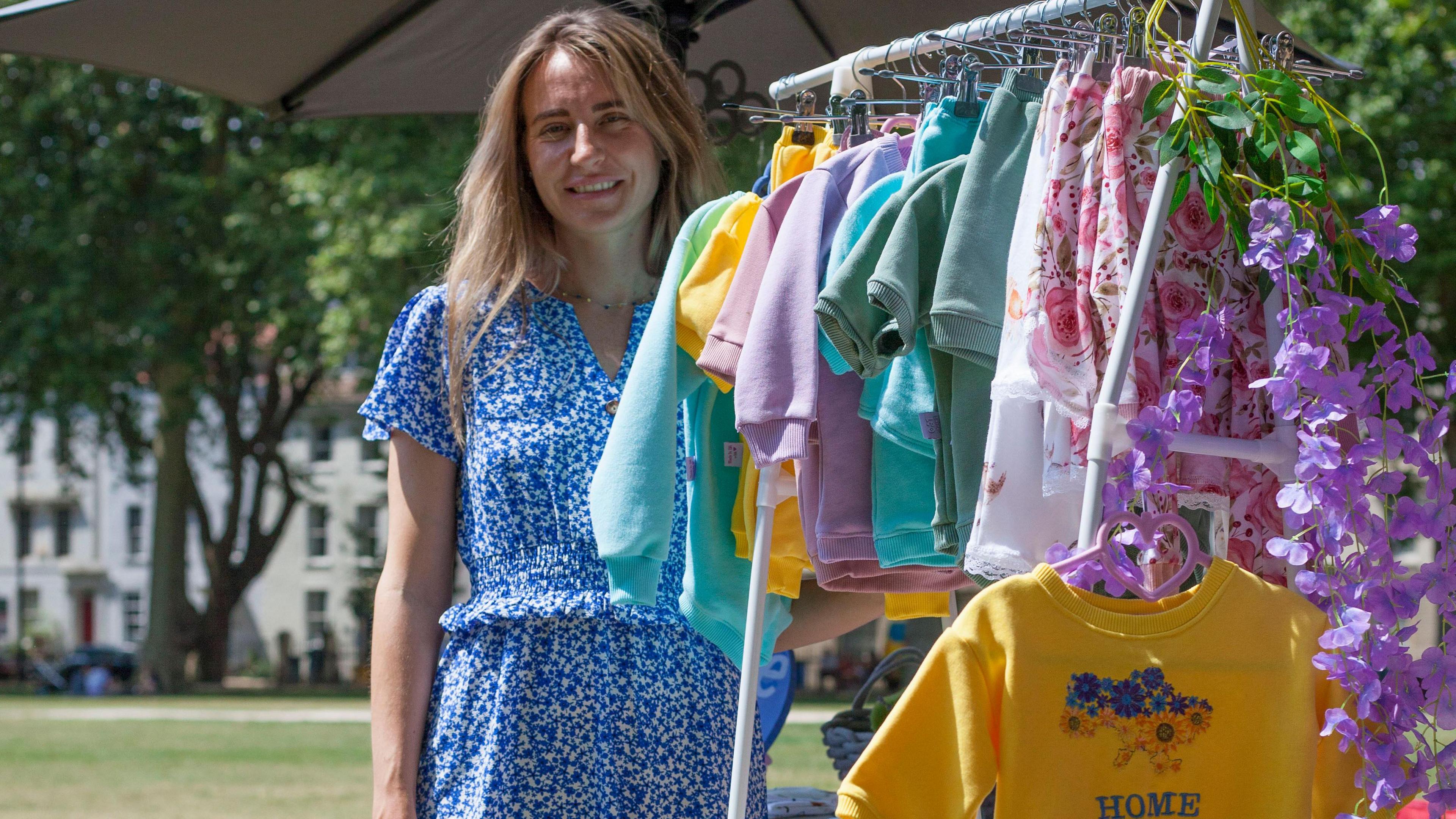Refugees overcome sea trauma with swim initiative
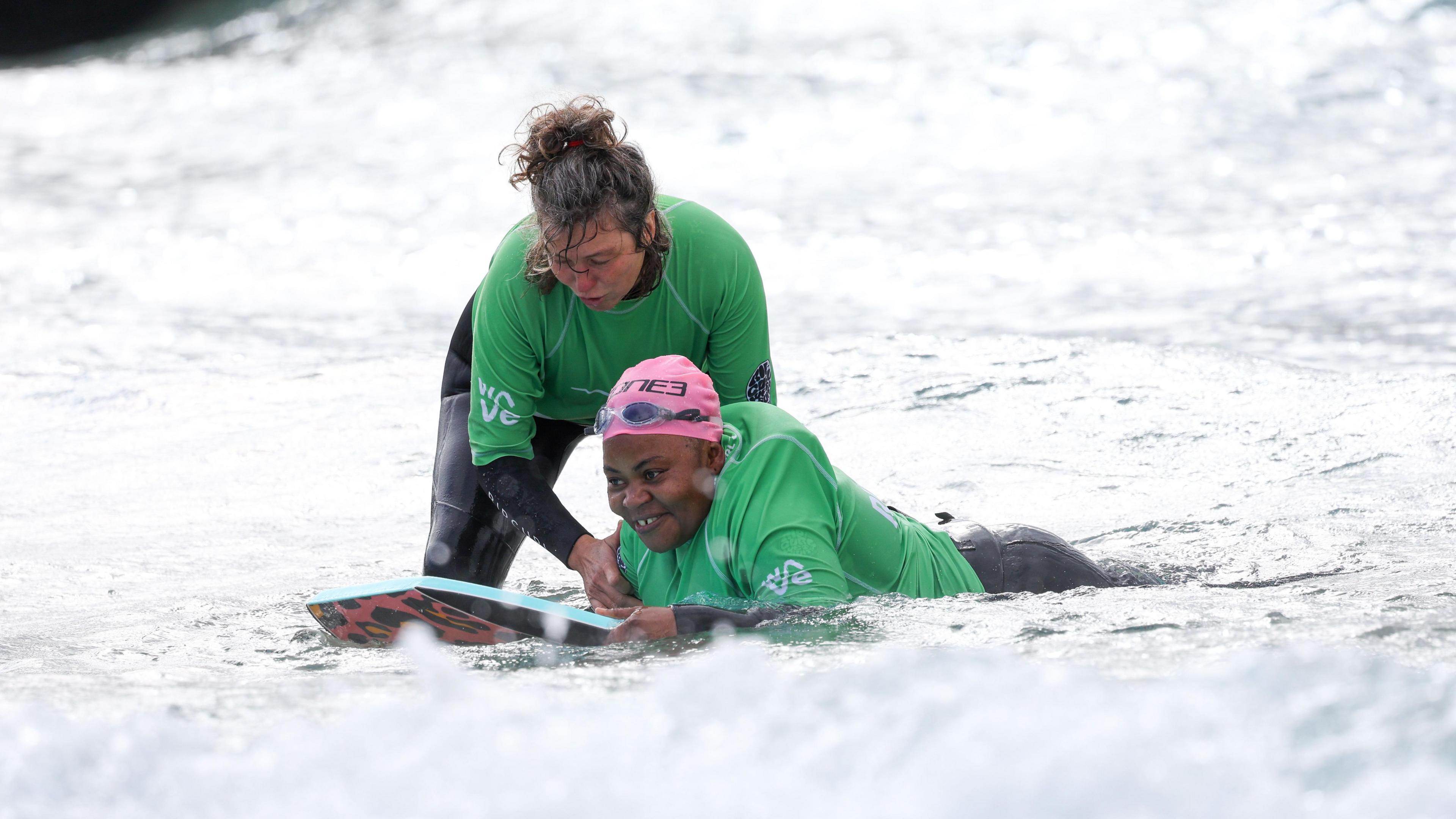
The one-to-one coaching sessions are "participant-led and trauma-informed"
- Published
A charity has said it is "heartwarming" to see refugees overcome sea trauma after suffering adverse experiences on the water.
Reclaim the Sea (RTS), which launched in 2022, hosts sessions for refugees and asylum seekers to learn basic swimming and survival skills on the water.
It held a session at The Wave in Bristol on Monday which saw eight women experience breaking waves for the first time.
Katie Pritchard, the charity's volunteer coordinator, said that by the end of the four-week programme, "the water had become a space of joy instead of fear".
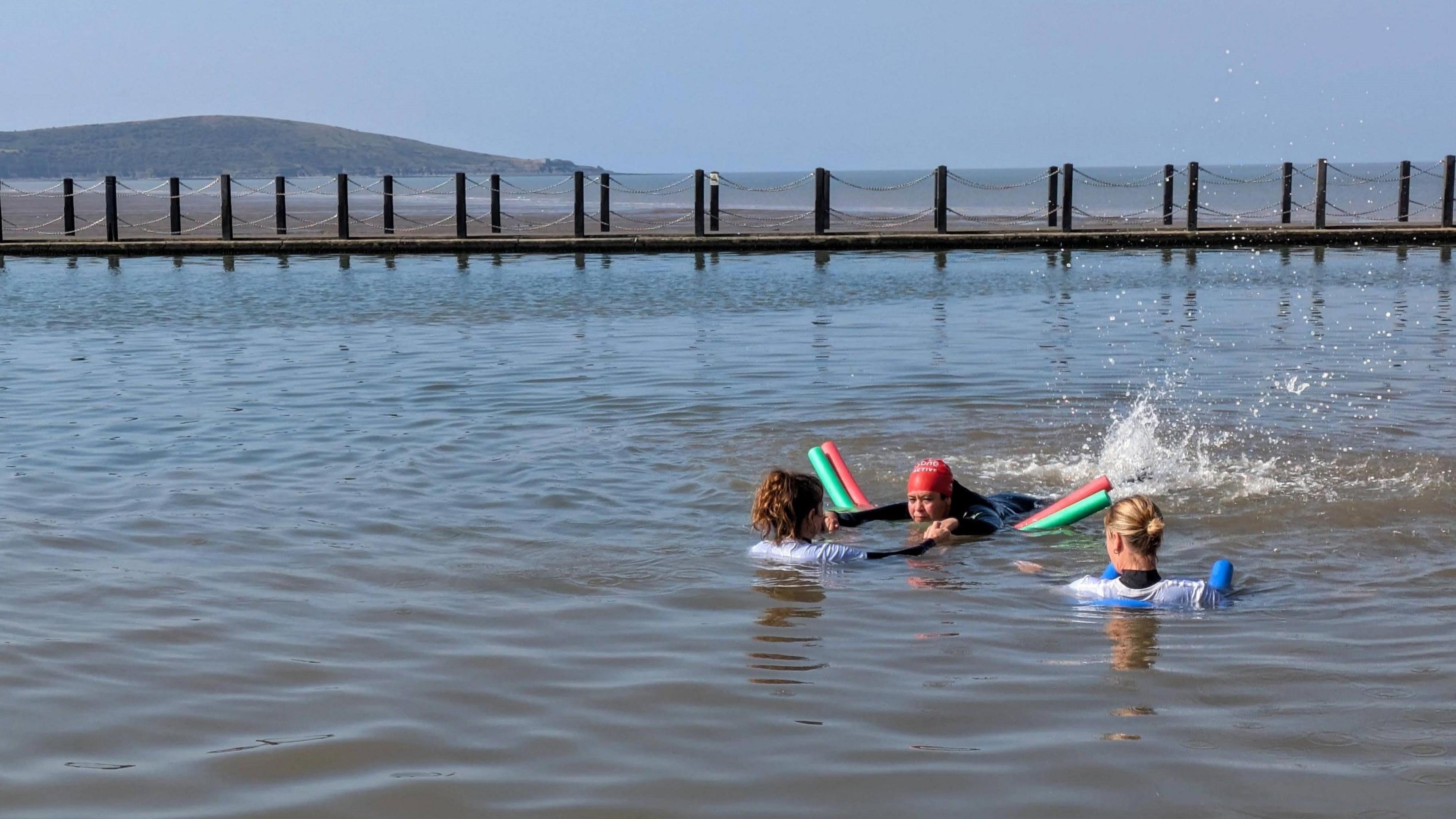
The participants began learning on the still water at Weston-super-Mare's Marine Lake
Partnering with Refugees Welcome North Somerset (RWNS), the Plymouth-based charity hosted three initial sessions on the still water at Weston-super-Mare's Marine Lake.
The programme built on new skills each week until the women felt confident enough to tackle the waves.
Ms Pritchard said "feelings of trepidation" could often come from experiencing difficult crossings to the UK, knowing others who have experienced trauma on migrant boats, or simply not having access to the sea in their home countries.
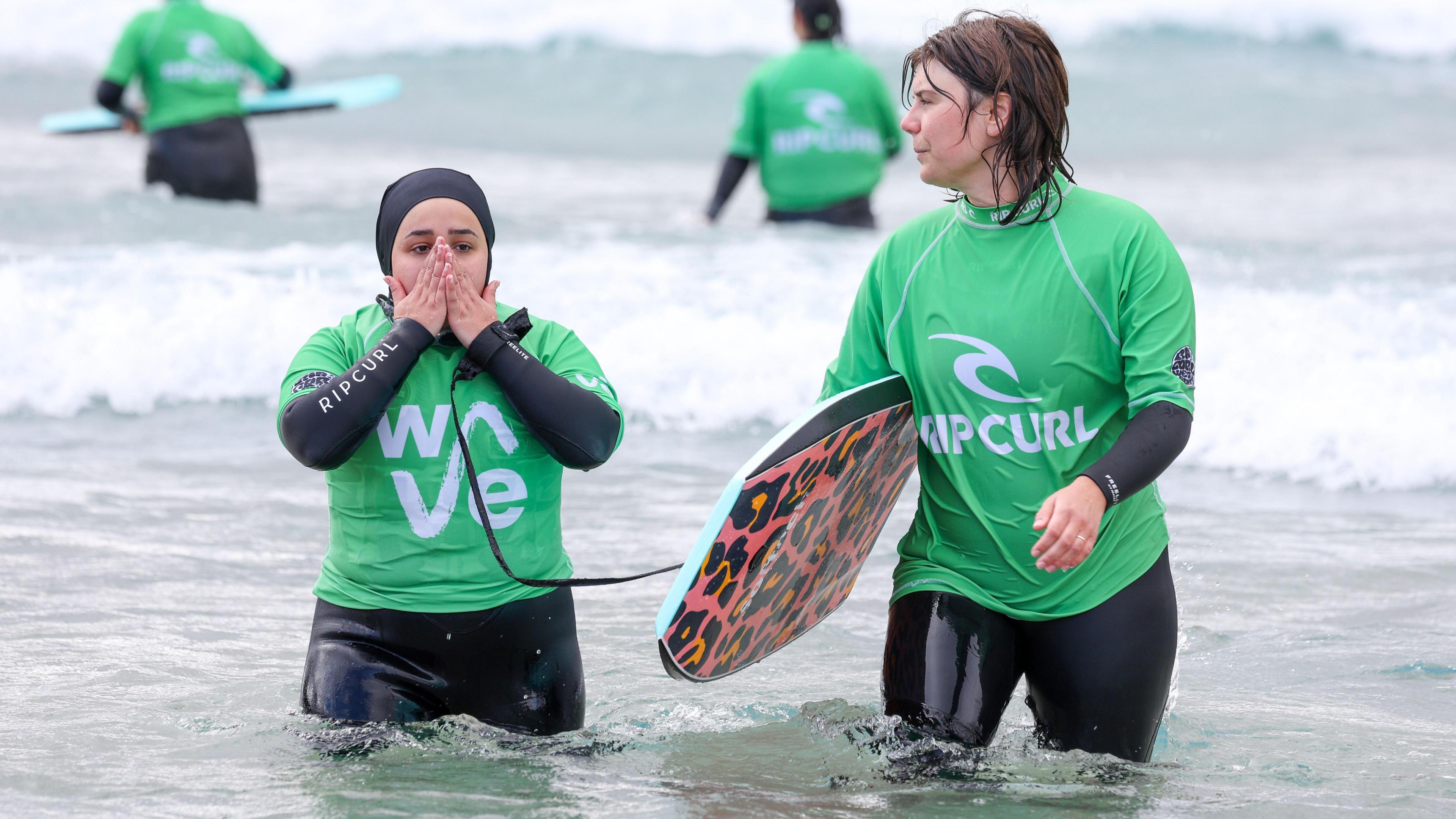
The women were each paired up with volunteers on a one-to-one basis
However, volunteers refrain from asking the participants any personal questions, and conduct mandatory trauma-informed training to offer the best support possible.
“We don’t know what’s happened to these women before they came here," Ms Pritchard said.
"They might have a lot of trauma attached to their past and we just want them to live in the moment and have positive associations.
“It’s incredibly important to create this protection barrier. The programme is designed to be a safe space."
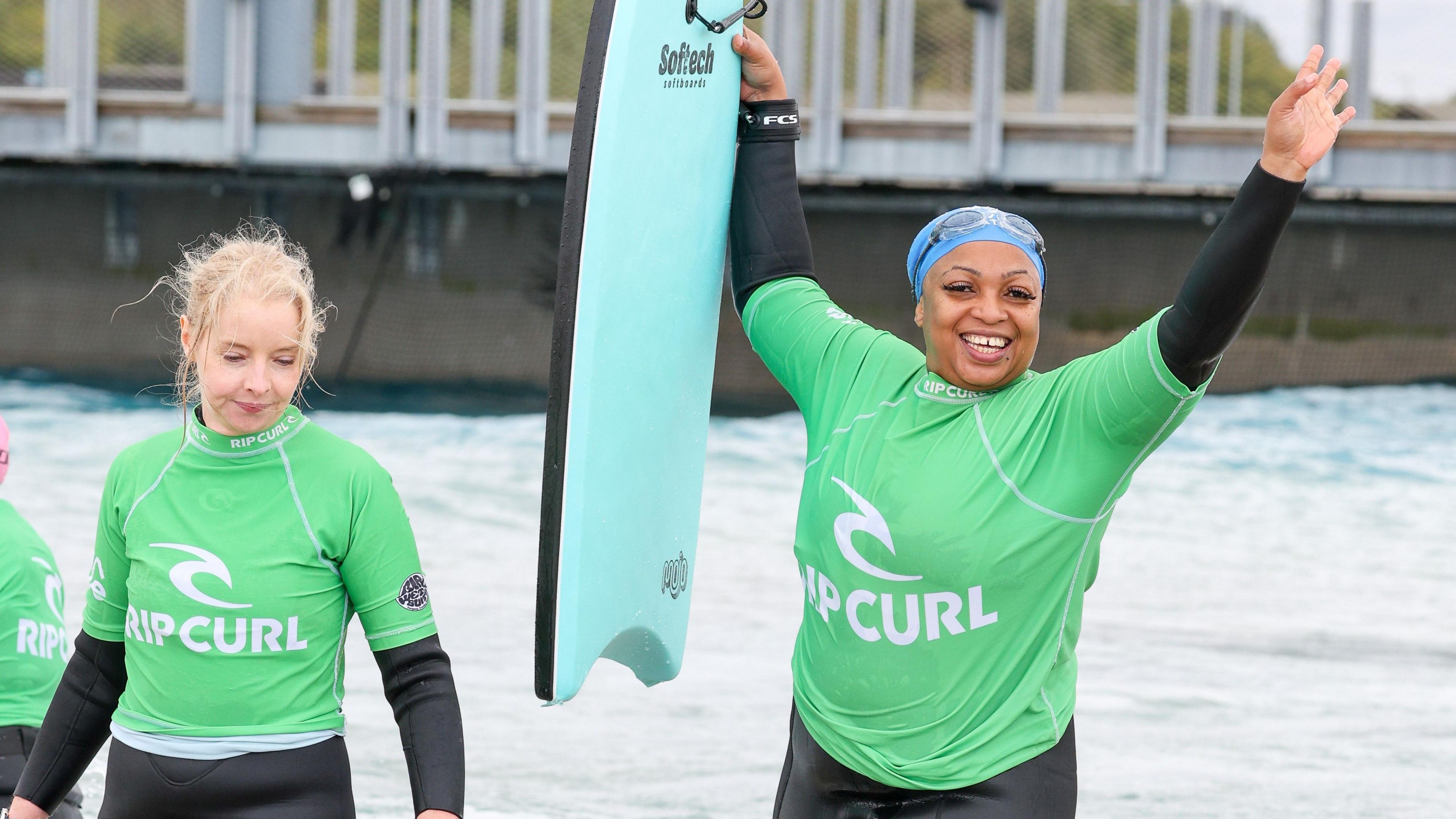
Ms Pritchard said she "never expected the women to be bodyboarding by the end" of the programme
Ms Pritchard said that at the start of the programme, the women had been scared to even lift their feet off the ground.
But by the final session, they were bodyboarding and laughing in the waves.
Rido, a Reclaim the Sea participant, said the experience had been "extraordinary" and she was excited for future programmes.
"I can't believe that me, a woman my size, can actually float in the water," she said.
"It feels incredible. Floating in the water makes all my worries go away."
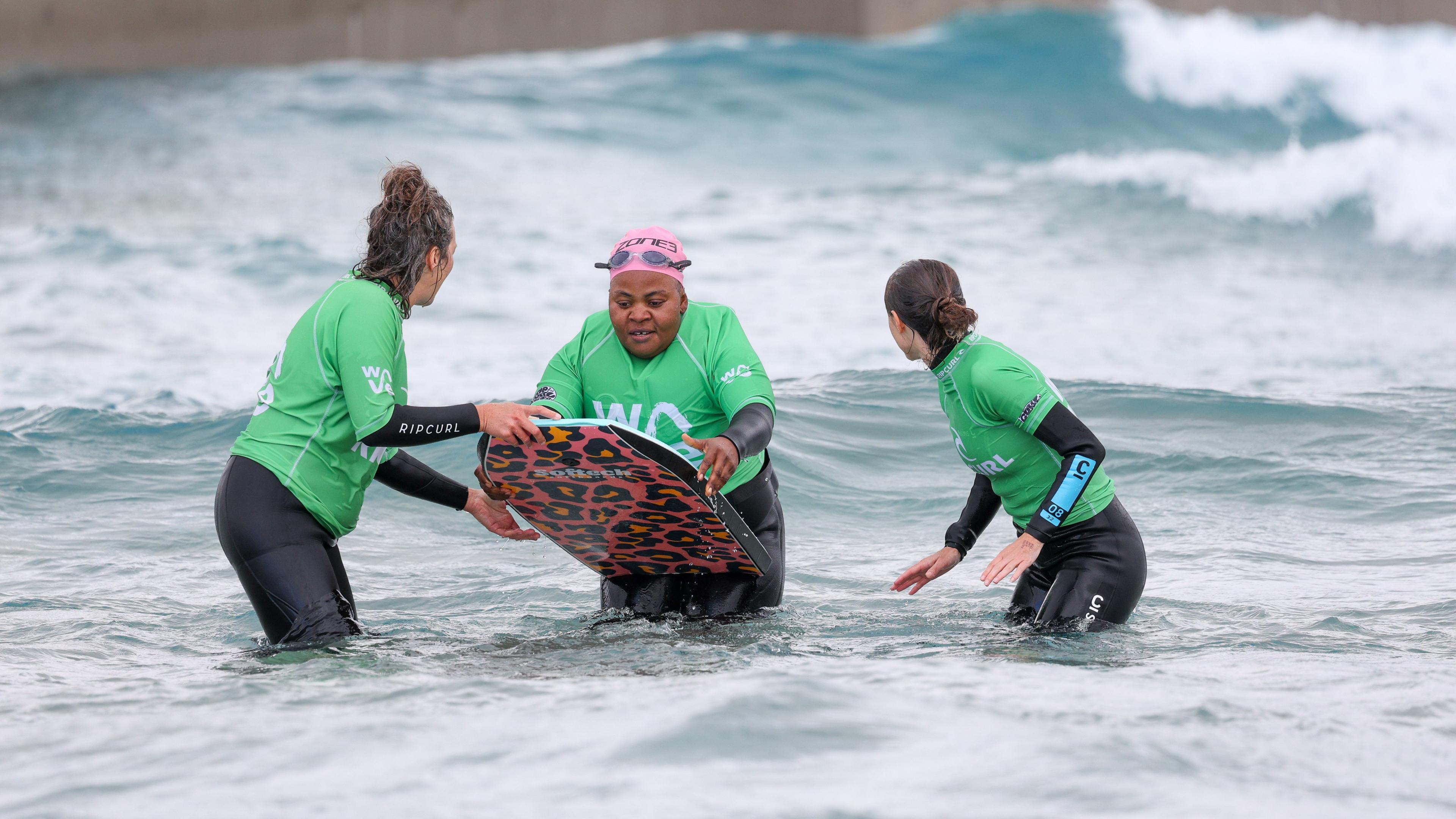
The Wave's impact programme aims to boost diversity in surfing and watersports
Nick Hounsfield, founder of The Wave, said the inland surfing lake was born out of a "fundamental belief in the positive health benefits of waver and waves".
He said: "Our Impact Programme is all about working in partnership to identify and tackle barriers to surfing and blue space, and ensure the benefits are available to people of all ages, backgrounds and abilities."
Get in touch
Tell us which stories we should cover in Bristol
Follow BBC Bristol on Facebook, external, X, external and Instagram, external. Send your story ideas to us on email or via WhatsApp on 0800 313 4630.
Related topics
- Published10 September 2024
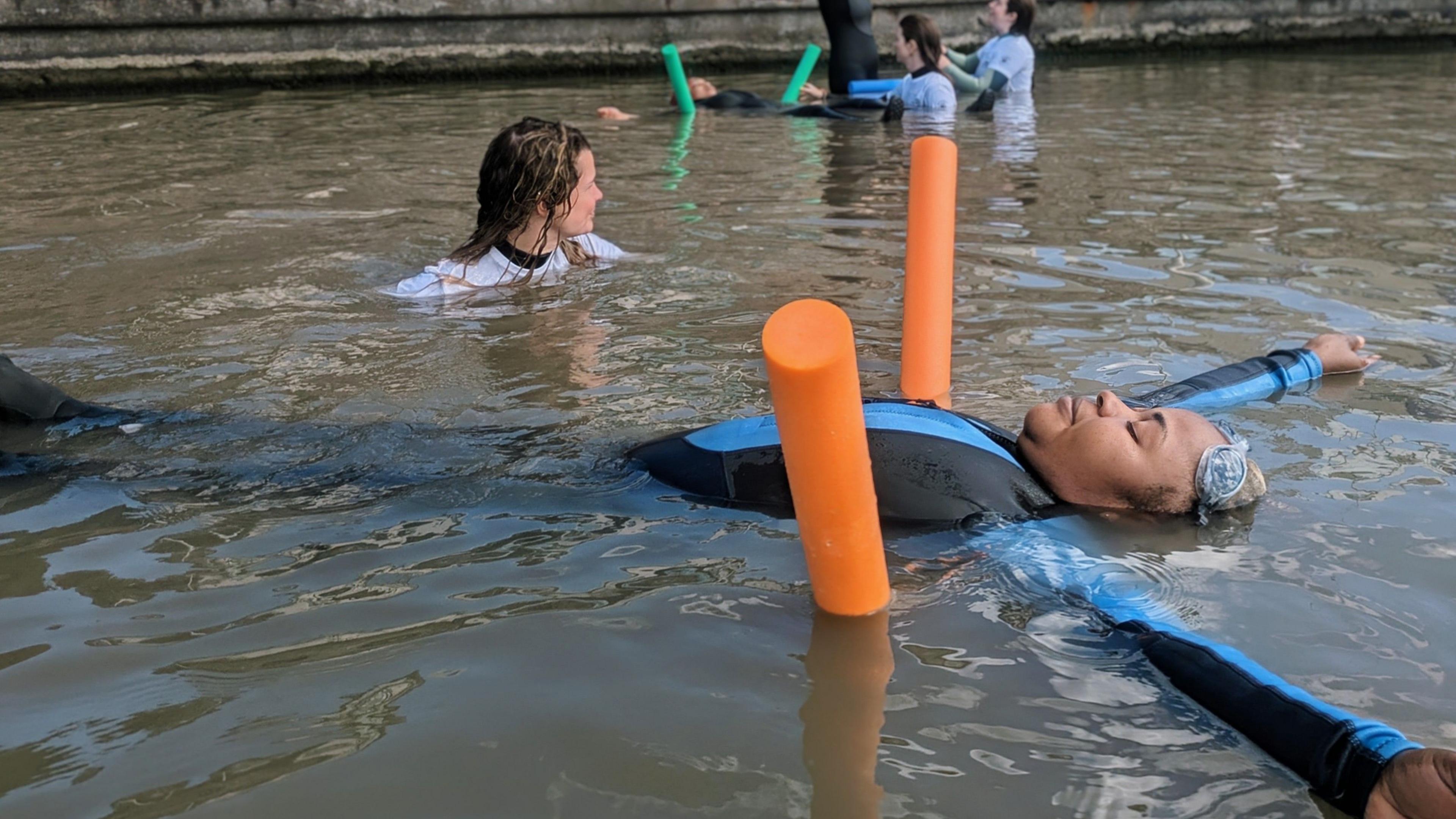
- Published2 January 2023

- Published9 July 2024
